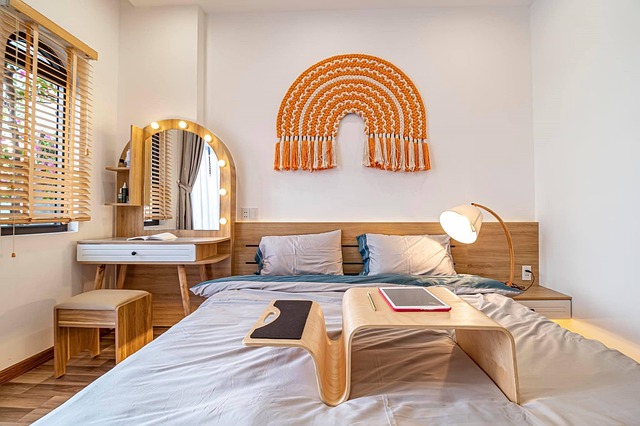In the ever-evolving landscape of real estate, property owners and investors are constantly seeking the most lucrative avenues for generating income from their assets. With the rise of sharing economy platforms like Airbnb, property owners are presented with a tantalising opportunity to turn their spaces into short-term accommodations, often raising the question: “Do you make more money with Airbnb or traditional renting?” Deciphering the optimal path requires a nuanced understanding of both models, considering factors like occupancy rates, rental income, expenses, and market dynamics. In this article, we’ll delve into the pros and cons of both Airbnb and traditional renting to decode which option holds the promise of greater profits.
Airbnb: The Modern Profit Generator
Exploring the Airbnb Model
Airbnb has revolutionised the way individuals travel, offering unique and personalised lodging experiences that go beyond traditional hotels. For property owners, this platform opens the door to a new realm of income potential. One of the standout advantages of Airbnb is the flexibility it provides – property owners can list their spaces as short-term rentals on a nightly, weekly, or monthly basis, allowing for quick adjustments to pricing strategies based on demand and seasonality.

The Allure of Higher Rates
One of the most compelling arguments in favour of Airbnb is the potential for higher rental rates compared to traditional renting. The short-term nature of Airbnb accommodations often commands premium prices, especially in prime tourist destinations or during peak travel seasons. This can translate into a substantial income boost for property owners who are strategic with their pricing. Moreover, the ability to adjust rates in response to market fluctuations enables property owners to optimise their revenue streams.
Occupancy Rates and Demand
To determine the profitability of Airbnb versus traditional renting, occupancy rates play a pivotal role. Airbnb’s model thrives on high occupancy, with frequent turnovers of guests. However, achieving consistent high occupancy requires efficient property management and stellar guest experiences. Popular tourist destinations can see peak demand during certain periods, allowing property owners to maximise earnings during those times.
Traditional Renting: Stability and Longevity
Steady Income Stream
Traditional renting, often involving long-term leases, offers property owners a stable and reliable income stream. Unlike Airbnb, where occupancy can vary greatly, traditional rentals provide the assurance of a consistent monthly payment, making it easier to plan and manage finances. This stability is particularly attractive for property owners seeking reliable cash flow without the constant fluctuations of short-term rentals.
Reduced Operational Demands
While Airbnb can be lucrative, it comes with increased operational demands. Property owners must manage guest check-ins, cleaning between stays, and maintaining the property’s amenities and appearance. Traditional rentals, on the other hand, often involve less frequent turnover and less hands-on management. This can be advantageous for property owners who prefer a more hands-off approach or those who have limited time to dedicate to property maintenance.
Market Trends and Location
When evaluating traditional renting, the location of the property plays a critical role in determining its profitability. Properties situated in areas with high demand for long-term housing, such as urban centres or residential neighbourhoods close to job hubs, tend to perform well in the traditional rental market. Additionally, properties in regions with stable housing markets and growing populations can provide consistent rental income and potential for property value appreciation.
Comparing the Bottom Line
Financial Considerations
While both Airbnb and traditional renting have their merits, the ultimate question remains: which option yields higher profits? The answer lies in a careful examination of various financial factors, including rental rates, occupancy rates, and expenses. In terms of sheer rental rates, Airbnb often has the upper hand due to the ability to charge premium prices for short-term stays. However, the operational costs associated with maintaining an Airbnb property can be considerably higher, including cleaning fees, furnishing and decor upkeep, and marketing expenses.

Expenses and Hidden Costs
Traditional renting generally involves lower operational costs compared to Airbnb. With long-term tenants, the frequency of turnover is significantly reduced, which can lead to lower cleaning and maintenance expenses. Additionally, property owners might find that utilities and property management costs are more predictable in a traditional rental scenario. It’s important to factor in these hidden costs when calculating the overall profitability of each model.
Conclusion: A Tale of Strategy and Preference
In the ongoing debate of Airbnb versus traditional renting, the answer to which option is more profitable largely depends on individual circumstances and goals. Airbnb offers the allure of higher rental rates and the flexibility to adapt to market changes quickly. However, it comes with the demands of active property management and variable occupancy rates. Traditional renting, on the other hand, provides a stable income stream and reduced operational demands, catering to property owners seeking a more predictable investment.
Ultimately, the decision between Airbnb and traditional renting should be guided by a clear understanding of market dynamics, property location, financial goals, and personal preferences. In the ever-changing landscape of real estate, decoding profits requires a balanced assessment of all available options. As property owners strive to maximise their returns, careful consideration of the advantages and disadvantages of both Airbnb and traditional renting will be the key to unlocking the full potential of their real estate investments.


